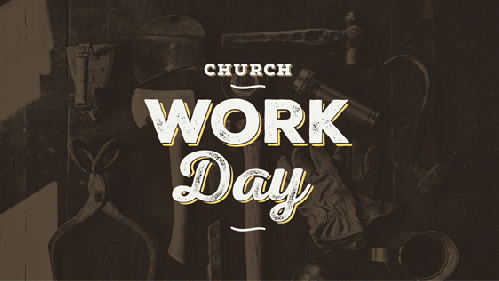And he gave the apostles, the prophets, the evangelists, the shepherds and teachers, to equip the saints for the work of ministry, for building up the body of Christ, until we all attain to the unity of the faith and of the knowledge of the Son of God, to mature manhood, to the measure of the stature of the fullness of Christ, so that we may no longer be children, tossed to and fro by the waves and carried about by every wind of doctrine, by human cunning, by craftiness in deceitful schemes. Rather, speaking the truth in love, we are to grow up in every way into him who is the head, into Christ, from whom the whole body, joined and held together by every joint with which it is equipped, when each part is working properly, makes the body grow so that it builds itself up in love. - Ephesians 4:11-16 (ESV)
As the last idol of the church age, Christian nationalism, or dominionism, has no shortage of shills pushing the church towards this apostasy foresaw in Thessalonians. One such dominionist advocate is Joseph Mattera, who also is in charge of some national apostolic council. The above link is to Mattera's latest pitch on Charisma News, where he posits that the church needs to takeover the workplace. You know, because God needs our help so bad. Ugh. Let us reason beloved, once more.
'In the early church, there was no separation between the clergy and laity. This separation happened when the church began to imitate Rome, and as a result, became an institution in the fourth century. Every believer in the early church was expected to be a witness for Christ. Most congregations met in homes and many had their place of business in the same location where they resided. Consequently, they used the workplace as their primary platform to share the gospel. They did not depend upon a professional pastor to share the word on Sundays, inside a so-called "sacred building."' - Joseph Mattera
This is what is so maddening with NAR false teachers. We have to believe on some level Joseph Mattera knows better than this. The bible is quite clear he is wrong. He so wants his carnal theology to be correct that he starts to misread history as well as scripture. Hear me very clearly. There has always been and always will be a clear delineation between clergy and laity within God's church. That does not make one better than other because the bible warns pastors against lording themselves over their flocks. If you read the ending of Acts 2, you will see a church that devoted themselves to the apostle's teaching and fellowshipping together. Sure, sounds like a church structure. The apostle's teaching, we refer to as the bible today. Just in case someone wants even more biblical proof, let us turn to the key verses for today where Paul lays out the organizational structure God has chosen for His church and the reasoning.
First God provided the church with various leadership roles. Apostles, prophets, evangelists, shepherds and teachers are named specifically. Are these leadership positions no different than laity? Absolutely not. They are in fact for the building up of the laity. Why? So, the laity might one day reach the unity of the faith and the knowledge of the Son of God to mature manhood. Why is it important for the laity to grow into the measure of the stature of the fullness of Christ? So that we might not be deceived by false teaching! That we might not be tossed to and fro by every cunning, deceitful doctrine! Think about that for a second! This is the design God has for His church. Are all apostles? No! Are all prophets? No! The notion that clergy and laity were the same is simply against the entire canon of scripture and skips what God wanted.
"Historically speaking: In the first century, Jesus started a way of life. Then, the Greeks made Christianity a philosophy in the second century. In the third century, faith was defined as a creed. Later, in the fourth century, Christianity became an institution. In the Middle Ages, it became a religion. The Protestant Reformation made it a national culture. In the 18th century, the Pietistic movement made the faith a personal experience. The liberal 18th century made Christianity an opinion. In the early 20th century, the fundamentalist movement made it a legalistic lifestyle. In the mid-20th century in the United States, Christianity became an enterprise. To have the greatest global impact, we must restore the church to the way of Jesus and His apostles of the first century. Part of the way of Jesus is ending the bifurcation between the workplace and church place so that the church gathered on Sunday becomes the church scattered on Monday! The following are 10 reasons why we need to release the church in the workplace:" - Joseph Mattera



